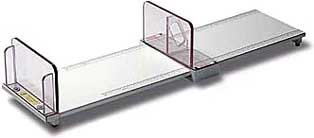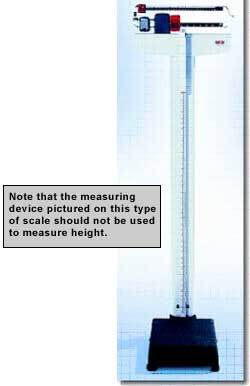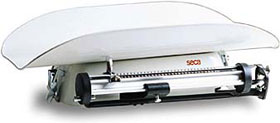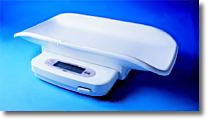WIC Participant
WIC Infant and Toddler Feeding Practices Study-2
App.DD.1_Eng.HomeHealthcareAgency.LengthWeight.Form
WIC Participant
OMB: 0584-0580
OMB
Approval No. 0584-XXXX Approval
Expires: XX/XX/20XX

Appendix DD.1
Feeding My Baby Study
ID label
Date: _____/_____/20____
Measurements
Clothing: Child should wear only diapers
Recumbent length (use length board with fixed headpiece and adjustable footboard)
Use NHANES standard procedures
If unable to capture acceptable length, reposition child and re-measure
│__│__│.│__│cm.
Weight (use portable calibrated scale)
Use NHANES standard procedures
If unable to capture acceptable weight, reposition child and re-measure
│__│__│.│__│kg.
Concerns/Comments about measurements:
____________________________________________________________________________________________________________________________________________________________________________________________________________________________________________________________________________________________________________________________________________________________________________________________________________________________________________________________________________________
Standard NHANES procedures
Recumbent length (use length board with fixed headpiece and adjustable footboard)
Cover length board with paper
Lay child on length board with head towards headpiece in Frankfort horizontal plane
Have caretaker apply gentle traction to bring the top of head in contact with fixed headpiece and secure head by lightly cupping palms of hands over ears
Align legs by placing one hand gently but with mild pressure over knees
With other hand slide foot piece to rest firmly at child’s heels
Toes should point directly upward with both soles of feet flexed perpendicular against footboard.
To encourage child to flex feet, run tip of finger down inside of foot
Read measurement on length board that corresponds with the foot piece
If unable to capture acceptable length, reposition child and remeasure
Length Boards for Measuring Infants
A recumbent measuring board should have a firm, flat base with an
attached measuring tape, a fixed perpendicular headpiece and a
smoothly sliding foot piece constructed of a durable material like
wood or plexiglass that is easy to clean. The foot piece must form a
90º angle with the measurement surface. All edges must be smooth
and finished. Measurements should be readable to the nearest 1/8
inch. The board should be placed on a secure table with enough room
for the Assistant to be able to stand behind the back of the head of
the child.
recumbent measuring board should have a firm, flat base with an
attached measuring tape, a fixed perpendicular headpiece and a
smoothly sliding foot piece constructed of a durable material like
wood or plexiglass that is easy to clean. The foot piece must form a
90º angle with the measurement surface. All edges must be smooth
and finished. Measurements should be readable to the nearest 1/8
inch. The board should be placed on a secure table with enough room
for the Assistant to be able to stand behind the back of the head of
the child.
Weight (use portable calibrated scale)
Infants – standard scale
If use standard scale, weigh caretaker first
Tare scale
Hand caretaker the child
Capture weight of child
Infants – infant scale
Cover scale with paper
Place child on back or sitting, in center of tray
Capture weight of child
Toddlers
Have child stand on center of scale with hands by side
Record weight
Scales for Weighing Infants
I nfant
beam balance or digital scales are appropriate to use for weighing
infants. Beam balance scales should be marked in increments of 1
ounce or less. They should have a screw-type zeroing adjustment.
There should be two sliding weights on a beam balance scale, one for
whole pound increments and a second for ounces. Digital scales should
read to one ounce or less. Both types should have features that allow
for calibration.
nfant
beam balance or digital scales are appropriate to use for weighing
infants. Beam balance scales should be marked in increments of 1
ounce or less. They should have a screw-type zeroing adjustment.
There should be two sliding weights on a beam balance scale, one for
whole pound increments and a second for ounces. Digital scales should
read to one ounce or less. Both types should have features that allow
for calibration.


According
to the Paperwork Reduction Act of 1995, no persons are required to
respond to a collection of information unless it displays a valid
OMB number. The valid OMB control number for this information
collection is 0584-XXXX. The time required to complete this
information collection is estimated to average 10 minutes per
response, including the time for reviewing instructions, searching
existing data sources, gathering and maintaining the data needed,
and completing and reviewing the collection of information.
| File Type | application/vnd.openxmlformats-officedocument.wordprocessingml.document |
| Author | Susie McNutt |
| File Modified | 0000-00-00 |
| File Created | 2021-01-30 |
© 2026 OMB.report | Privacy Policy